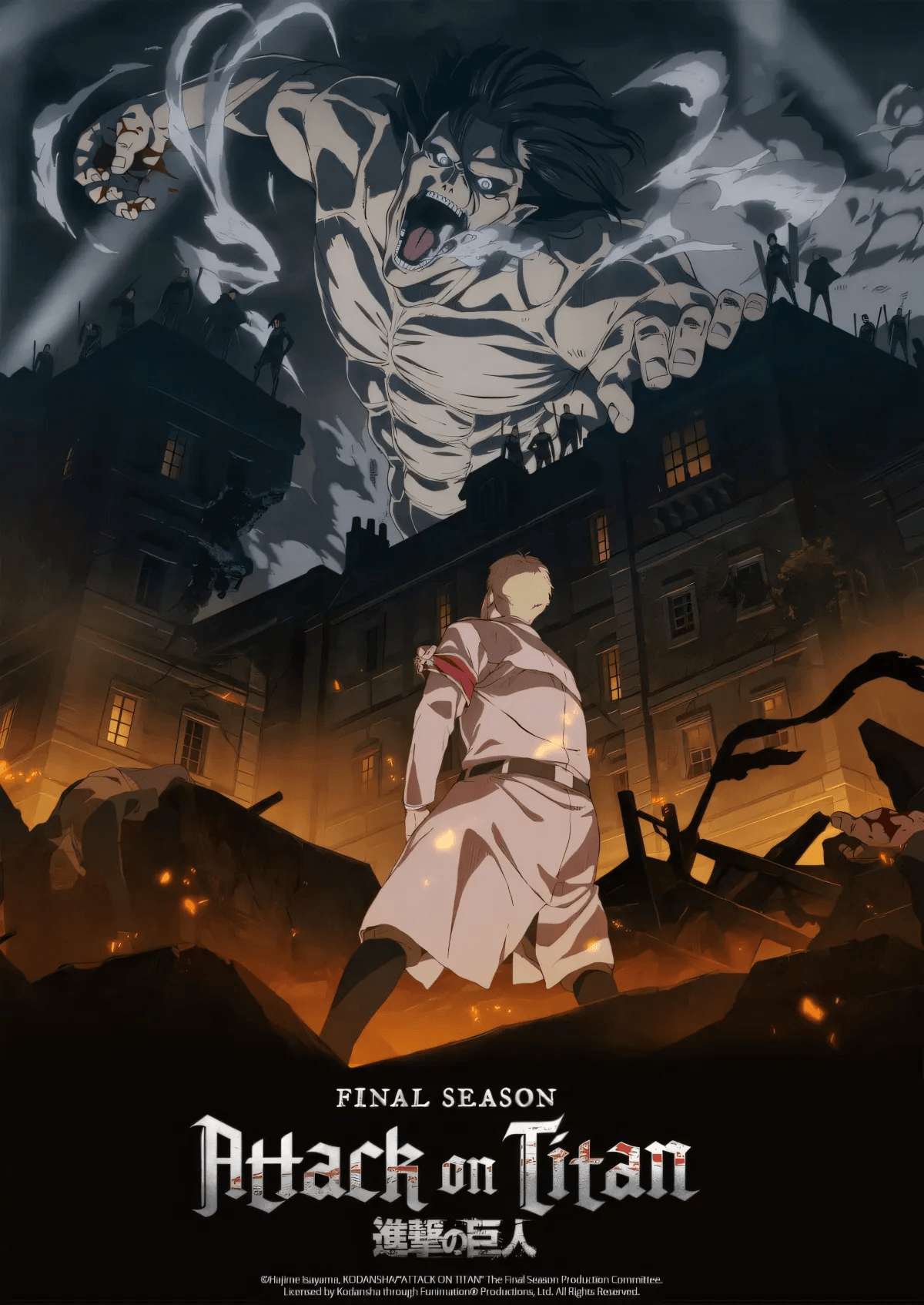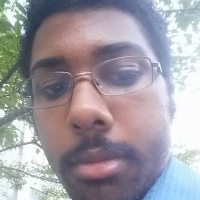4 Ways That Attack On Titan And The Promised Neverland Are Surprisingly Similar

On the surface, Attack on Titan and The Promised Neverland doesn’t have much in common with each other; the former revolves around teenagers and young adults in an action-horror series, the latter revolves around children in a fantastical, psychological thriller, and the works they’re adapted from aren’t even published in the same magazine. However, the key phrasing here is “on the surface”; if you dig a little deeper, the two end up sharing a surprising amount of common ground with each other.
Here Are The 4 Ways That Attack On Titan And The Promised Neverland Are Surprisingly Similar:
1. The Basic Plot Overlaps
This is the simplest way in which Attack on Titan and The Promised Neverland overlap with each other. Both series are dark shonen anime, meaning anime targeted primarily to young boys, that revolve around humans being in conflict with man-eating monsters; for Attack on Titan, it’s the titular Titans, and for The Promised Neverland, it’s man-eating demons. It’s not uncommon for stories to overlap with one another in terms of plot, and while these two stories seem like they couldn’t be any more different, they end up being no more immune to it than other stories.
2. Similar Story Revelations
Another way that the two overlaps with one another are through the various revelations about their respective settings. In Attack on Titan, it was recently revealed that the reason that people live behind walls to protect themselves from Titans is that a country called Marley is trying to punish them for how their ancestors allegedly enslaved them and the rest of the world thousands of years prior, and the events of the story were kickstarted by Marley deciding to kill them all in order to take control of both their natural resources and a Titan with the power to control other Titans, a power that was unknowingly given to the protagonist.
In The Promised Neverland, thousands of years ago, humans and man-eating demons were at war with each other until they made a promise to leave each other alone, with the demons, who need to continually eat humans in order to keep them from devolving into a feral-like state of being, being allowed to breed their own humans like cattle in exchange for leaving the larger population alone, and the main characters are the human children who would be the newest cattle in the present day.
Essentially, both series have revelations of the humans being treated like cattle by more powerful forces in response to things done centuries before the story began; it’s a rather surprising coincidence, and it goes to show just how easy it is for stories to end up having common ground.
3. Having Genocide As A Possible Solution
In regards to the previously stated revelations, neither series has characters reacting positively to them in the slightest, especially since a great deal of physical and mental torment was inflicted upon the characters both before and after receiving said revelations, and it’s likely because of that that both shows have characters respond to the reveal by deciding the best option is to simply kill everyone and everything around them.
In Attack on Titan, a section of the military who have a cultish admiration of the protagonist advocate for him to use his powers to unleash an army of hundreds of giant-sized Titans upon the world and flatten everything they come across, a possibility referred to everyone as the “Rumbling”; in The Promised Neverland, one of the main characters plans on using a drug to turn all of the intelligent demons into wild beasts so they’ll slaughter each other and let the enslaved humans build a society atop their corpses.
Both stories have characters considering options that would leave untold numbers of people dead, including those who aren’t even involved in the conflict, but it’s not as if those decisions are entirely unfounded.
4. The Characters’ Desires For Genocide Being Understandable
In the real world, genocide is obviously a terrible thing and one of the worst things anyone can do and has done, to anyone, but in regards to these two fictional stories, the idea that characters would advocate for genocide isn’t completely unjustifiable. For Attack on Titan, over a century’s worth of propaganda has turned the entire world against the entire ethnic group that the main characters belong to, and even if they try to tell the world that they just want to live in peace, that kind of hatred won’t simply disappear and the world will keep trying to kill them for their own benefit.
For The Promised Neverland, demons kill and devour humans on a daily basis for the sake of maintaining their own intelligence and are never shown to care about the lives of their victims, and while there are means to avoid the problem, they’re hard to utilize and the ruling class of demons conspires to make them unavailable to the general public. The only hitch in the respective plans becomes the obvious moral quandary of killing innocent lives for the sake of realizing your goals and ambitions, but that’s not an easy argument to support since it essentially calls for the safety of the principal cast to be sacrificed in support of faceless mobs the audience has little reason to be invested in.
The idea is especially contested for The Promised Neverland because while Attack on Titan has shown humans in the wider parts of the world who act nice and have no part in the war and bigotry of the main story. The Promised Neverland doesn’t do much to draw sympathy for demons beyond having a few nameless demons not behave in an obviously evil manner, which doesn’t change how they eat humans without a care in the world. Again, genocide is a terrible thing to consider in real life, but in regards to these fictional stories, it makes sense that people would decide to go with it.
In conclusion, Attack on Titan and The Promised Neverland end up having a surprising amount of common ground with each other. Whether it’s in regards to plot, themes, or characters, the two stories are more alike than one might think, and for fans of both, that sort of realization can end up bettering one's overall enjoyment of both.
Opinions and Perspectives
I think both series really nail the feeling of fighting against overwhelming odds.
I love how both shows make you sympathize with different perspectives.
What I love about both series is how they keep raising the stakes naturally.
Both series are masters at subverting expectations while staying true to their core themes.
Im impressed by how both series maintain tension even after major reveals.
The pacing in both series is so well done. They know exactly when to reveal new information.
Both shows really excel at making you feel the weight of each decision the characters make.
I see what youre saying about the genocide angle but I think its handled better in Attack on Titan.
The way both series handle hope in seemingly hopeless situations is really powerful.
Interesting points but I think The Promised Neverland is more about outsmarting while Attack on Titan focuses more on fighting back.
Both series really nail the feeling of being trapped by circumstances beyond your control.
The survival aspects in both series are handled so differently yet work equally well.
You could also add how both series deal with inherited sins and paying for the mistakes of previous generations.
These similarities really show how great minds think alike in storytelling.
The world-building in Attack on Titan is more complex but The Promised Neverland is more focused.
Im not entirely convinced by the genocide comparison. The contexts are quite different.
The parallels between Emma and Eren as protagonists are really interesting to analyze.
I remember being shocked by the reveals in both shows. They completely changed everything I thought I knew about their worlds.
The strategic elements in both series are so well thought out. Its not just about physical conflict.
I love how both shows start in such confined spaces and gradually expand their scope.
The way both series handle trauma and its effects on young people is really well done.
Both shows really excel at creating tension. I was on the edge of my seat watching both of them.
You make some valid points about the similarities but I think the execution in each series is vastly different.
I actually think The Promised Neverland has better character development in the early parts.
Thats an interesting observation about the reveal timing. Both series really know how to build up to major plot twists.
The article barely touches on how both shows deal with leadership and the burden of responsibility.
I find it fascinating how both series explore the idea of breaking free from predetermined fates.
Its wild how both shows make you sympathize with characters considering genocide. Really shows how good the writing is.
While I see the similarities I feel like the tone of each series is completely different. AOT is much more militaristic while TPN feels more like a psychological thriller.
The comparison between Marley and the demon society is spot on. Both represent systems of oppression that seem impossible to overcome.
Interesting analysis but I think youre missing the point about the demons in The Promised Neverland. Their situation is more complex than just being evil.
Anyone else notice how both shows have incredibly smart protagonists who have to outthink their enemies rather than just overpower them?
The way both series handle reveals is masterful. Each new piece of information completely changes how you view previous events.
Well the article makes some good points but lets not forget that both stories also share strong themes about freedom and breaking cycles of violence.
These similarities are interesting but I think Attack on Titan handles the moral complexities better than The Promised Neverland.
I actually disagree about the genocide comparison. The situations are quite different when you look at the details.
The world-building in both series is incredible. You start with what seems like a simple premise and then it keeps expanding into something much bigger.
Im surprised they didnt mention how both shows deal with the loss of innocence. The characters in both start out naive about their world.
Both series really dive deep into moral gray areas. It's fascinating how they make you question who's really right or wrong.
I never noticed these parallels before but they make so much sense! The cattle metaphor in both series is particularly striking to me.
